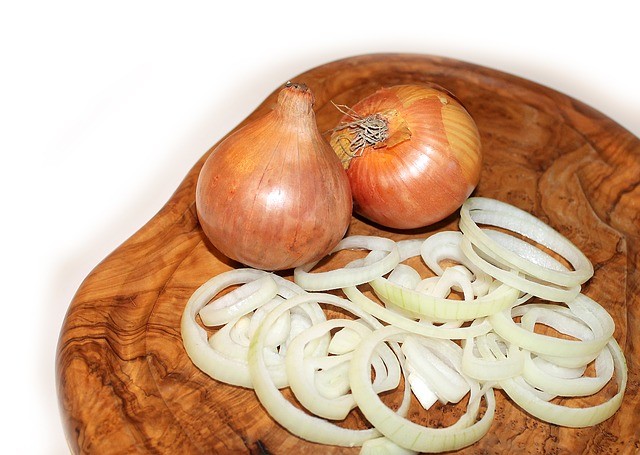Learn on what we can get from onions. Check out the article we found over at Mercola.com.
By Dr. Mercola
Eighty-seven percent of U.S. adults say they like onions, which is great news since they’re one of the healthiest foods you can eat. Rich in vitamin C, sulphuric compounds, flavonoids, and other phytochemicals, an onion a day may help keep the doctor away.
Onions are surprisingly high in beneficial polyphenols, which play an important role in preventing and reducing the progression of diabetes, cancer, and neurodegenerative and cardiovascular diseases.
Polyphenols also play an important role as a prebiotic, increasing the ratio of beneficial bacteria in your gut, which is important for health, weight management, and disease prevention.
Onions contain more polyphenols than even garlic or leeks, and are one of the best sources of a type of polyphenol called flavonoids, especially the flavonoid quercetin.
Onions Provide Disease-Fighting Quercetin
Quercetin is a powerful antioxidant with anti-inflammatory properties that may help fight chronic diseases like heart disease and cancer. In lab studies, quercetin was shown to prevent histamine release (histamines are the chemicals that cause allergic reactions.
This makes quercetin-rich foods like onions “natural antihistamines.”
Onions Provide the Valuable Prebiotic Inulin and May Help Prevent Ulcers
Prebiotics are indigestible to you, but they help nourish beneficial bacteria in your body. These beneficial bacteria in turn assist with digestion and absorption of your food, and play a significant role in your immune function. One such prebiotic is inulin, a water-soluble form of dietary fiber that’s found in onions.
Inulin has multiple benefits to your health. Among obese women, consuming inulin beneficially changed the gut microbiota composition in a way that might help promote weight loss or lower the risk of diabetes.
Further, among women with type 2 diabetes, those who took inulin had improved glycemic control and increased antioxidant activity. Inulin may even help relieve constipation. Flavonoid-rich foods like onions may also inhibit the growth of H. pylori, a type of bacteria responsible for most ulcers.
Up to 20 percent of Americans over the age of 40 have H. pylori living in their digestive tract, although most will not develop ulcers. Eating onions and other flavonoid-rich foods may lower your risk further.
Be Careful Not to ‘Overpeel’ Onions
When removing the outer skin of an onion, take care to remove as little as possible. The outer layers of the flesh are thought to be the most nutritious, including concentrating the highest amounts of flavonoids. As reported by the George Mateljan Foundation:
“The flavonoids in onion tend to be more concentrated in the outer layers of the flesh. To maximize your health benefits, peel off as little of the fleshy, edible portion as possible when removing the onion’s outermost paper layer. Even a small amount of ‘overpeeling’ can result in unwanted loss of flavonoids. For example, a red onion can lose about 20 percent of its quercetin and almost 75 percent of its anthocyanins if it is ‘overpeeled.'”
If you find it difficult to accomplish this because you’re trying to chop your onion as quickly as possible to avoid “crying,” there are tricks that may help. Onions release a gas called lachrymatory factor (LF), which causes tearing. To lessen the rate of LF production, try chilling the onion for an hour before cutting.
Next Article: Prevent Cancer By Consuming Garlic and Onions
Read full article: Onion Power!







Marybel McGuire
Feb 23. 2016
I just cured mine in lemon juice
Patricia Fleming
Feb 24. 2016
Hank Fridley lol xoxo